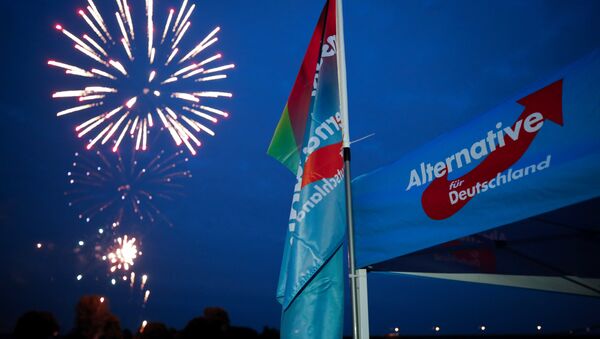According to the INSA poll, conducted for the Bild newspaper, the AfD's public support grew by 1 percent in under a week, amounting to 16 percent. The SPD lost one more percent of support and can count on only 15.5 percent of votes.
Incumbent Chancellor Angela Merkel's Christian Democratic Union (CDU) is supported by 32 percent of respondents, which is 2.5 percent more than last week.
The poll was conducted February 16-19, with 2,040 people having participated in it.
Germany, INSA poll:
— Europe Elects (@EuropeElects) 19 февраля 2018 г.
CDU/CSU-EPP: 32% (+2)
SPD-S&D: 16%
AfD-EFDD: 16% (+1)
GRÜNE-G/EFA: 13%
LINKE-LEFT: 11%
FDP-ALDE: 9% (-1)
Field work: 16/02/18–18/02/18
Sample size: 2,040#GroKo #NoGroKo #SPD #AfD pic.twitter.com/jlIsl8hBwz
In the event of early elections on Sunday, three more parties would enter the German parliament: the Greens, with 13 percent of votes, the Left party with 11 percent of votes and the Free Liberal Party (FDP) with 9 percent of votes.
Merkel originally planned to form a coalition with the Greens and the Free Democratic Party (FDP), but the prefatory talks with them turned out to be disappointing. Earlier this month, the chancellor announced that the CDU/CSU bloc and the SPD reached an agreement on creating a coalition.
READ MORE: Merkel: Nord Stream 2 Not a Threat to EU Energy Security
Germany held parliamentary elections on September 24. The CDU and its Bavarian sister party, the Christian Social Union (CSU), won the election with 33 percent of the vote, or 246 seats in the parliament, however, they couldn't secure an absolute majority. The SPD came second, with 20.5 percent of the vote and 153 seats.


